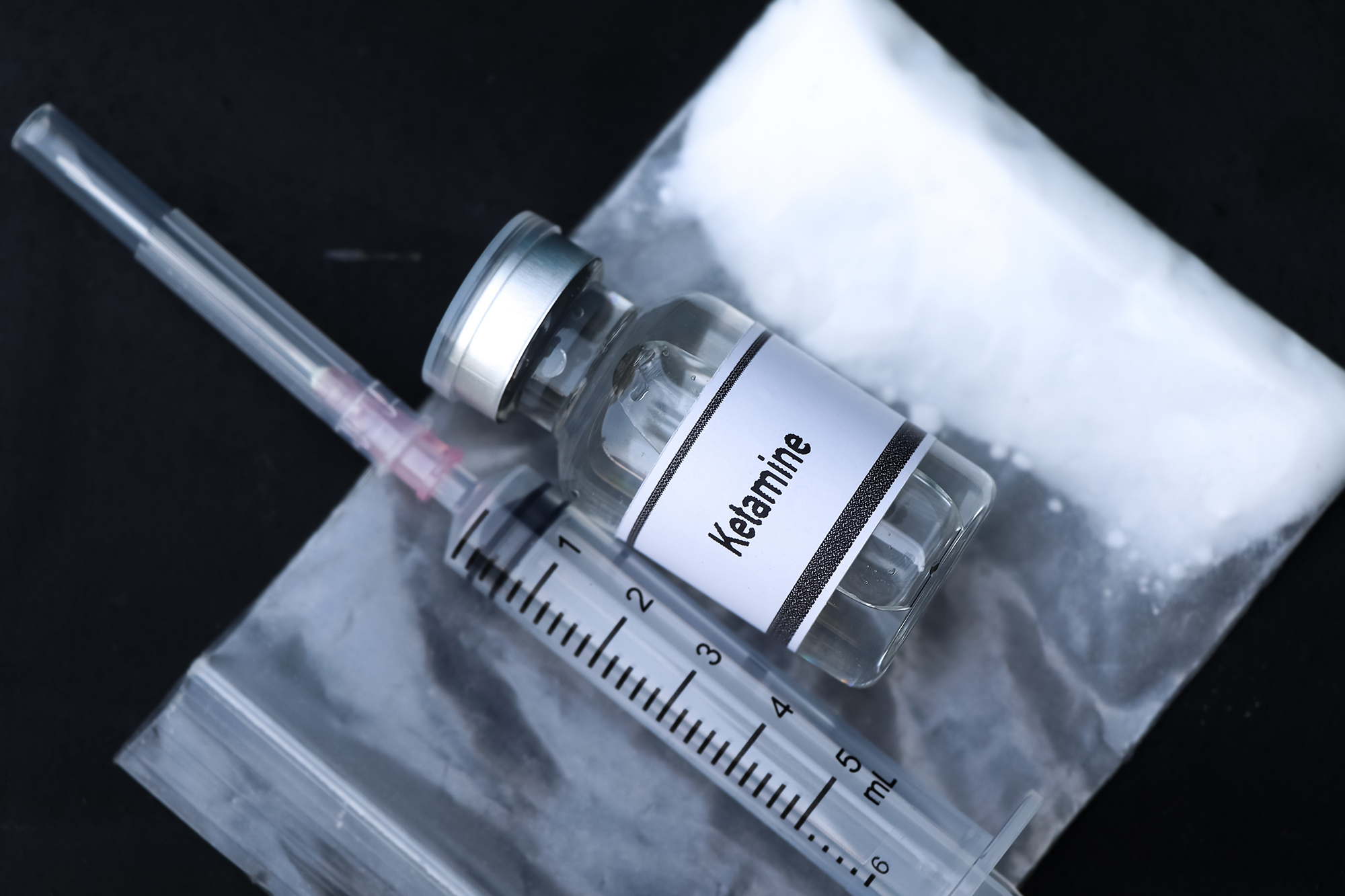Mental health industry watchdog says tragic deaths linked to the hallucinogen ketamine spurs call for investigation into unregulated ketamine clinics and drug usage
By CCHR International
The Mental Health Industry Watchdog
December 22, 2023
Recent incidents linked to the hallucinogen ketamine raise alarms about the unregulated ketamine infusion clinic industry in the U.S. and the use of the drug for restraining patients. Citizens Commission on Human Rights International (CCHR) calls for an inquiry into the risks of ketamine, often dispensed through unregulated ketamine infusion clinics. The group says hundreds of these clinics have sprung up in recent years to treat “mental disorders” and pain. Yet, the Food and Drug Administration (FDA) has not approved ketamine for the treatment of any psychiatric disorder, including depression.[1] It has also been used as a sedative during police restraints, leading to death.
Ketamine, approved only as an anesthetic, has been prescribed “off-label”—for conditions not FDA-approved—and has psychedelic, hallucinogenic properties.[2] As one critic noted, “Any U.S. medical provider can offer it off-label for whatever condition they want, from depression and anxiety to OCD and eating disorders, to alcoholism, drug addiction, schizophrenia, bipolar disorder, self-esteem issues, self-actualization…you name it!”[3]
A recent coroner’s finding revealed that a celebrity’s death was due to ketamine, which had been prescribed through a ketamine infusion clinic a week and a half before his death. According to a toxicology report from the Los Angeles County Medical Examiner’s Office, the person had anesthetic levels of the drug in his blood from other sources and died accidentally from “the acute effects of ketamine.” The drug was apparently prescribed to treat depression and anxiety.
According to The Los Angeles Times, the individual was undergoing ketamine infusion therapy every other day for a period of time but had reduced that intake more recently. Based on ketamine being found in the celebrity’s stomach, they may have taken ketamine orally, and the risk is that “there was too much taken at once.” The ketamine caused cardiovascular overstimulation and respiratory depression, the Los Angeles County medical examiner said.[4]
ABC News medical correspondent Dr. Darien Sutton noted, “It can negatively affect your heart rate, your blood pressure, it can cause deep levels of sedation and even stop breathing.”[5]
In April 2023, The Guardian reported hundreds of unregulated ketamine infusion clinics operate in the U.S. without any oversight. Ketamine can also be obtained through telemedicine where it is dished out like “candy.”[6] According to the psychedelic investment fund PsyMed, there were around 20 ketamine clinics in 2019. By the end of 2022, there were reportedly over 600 independent ketamine clinics.[7] One company charges $1,158 for six sessions.[8] Profits from ketamine grew from $8.3 million in 2017 to $185 million in 2022, according to The Wall Street Journal. Marketwatch estimates the global ketamine market will grow from $132 million in 2021 to $3.8 billion by 2027.[9]
CCHR says it is a lucrative market, and with no oversight, it is a dangerous one.
Other contributing factors to the celebrity’s death included preexisting health conditions, substance use disorder, and the concomitant use of drugs like buprenorphine (Suboxone) used for opioid addiction. USA Today reported ketamine use for mental health issues poses risks for people with a substance use disorder history, according to Dr. Peter Grinspoon, of Massachusetts General Hospital.[10]
The risks associated with combining ketamine with buprenorphine, as indicated by drugs.com, include dizziness, drowsiness, confusion, difficulty concentrating, excessive sedation, and respiratory depression.[11]
CCHR’s website details that buprenorphine is a synthetic opioid that is potentially addictive. The FDA warns that people taking buprenorphine have suffered serious breathing problems and death.[12]
Ketamine took center stage in a harrowing legal narrative in 2019, when paramedics injected Elijah McClain, a 23-year-old Black man from Aurora, Colorado, with the substance to subdue him after police arbitrarily detained him without cause. McClain lacked any criminal history and resisted an unwarranted police detention, prompting them to call in paramedics who administered a significant dose of ketamine. Tragically, on August 30, 2019, McClain was declared brain dead and taken off life support, with the official cause of death attributed to “complications of ketamine administration following forcible restraint.” In 2021, two paramedics faced charges of manslaughter and criminally negligent homicide. The trial has been ongoing in 2023.
Jan Eastgate, president of CCHR International said, “Extraordinary risks are being taken with patients’ lives when prescribing psychedelic and other psychotropic drugs that are not only unapproved but are also allowed to be mass distributed through unregulated clinics that profit from such risk-taking. It is unconscionable that such experimental and potentially dangerous drugs continue to be dispersed through these clinics or for any mental health issue and can be obtained through telepsychiatry, or other means.”
CCHR calls for a thorough investigation into the unregulated ketamine infusion clinic industry and emphasizes the urgent need to close these to prevent further tragedies associated with the use of ketamine for mental health issues.
[1] https://www.cchrint.org/2023/10/27/ketamine-widely-dispensed-despite-fda-warning-its-not-approved-for-psychiatric-use/, citing: “FDA warns patients and health care providers about potential risks associated with compounded ketamine products, including oral formulations, for the treatment of psychiatric disorders,” FDA, 10 Oct. 2023, https://www.fda.gov/drugs/human-drug-compounding/fda-warns-patients-and-health-care-providers-about-potential-risks-associated-compounded-ketamine; “Ketamine clinics have emerged across the US. They’re already going bust,” The Guardian, 11 Apr. 2023, https://www.theguardian.com/society/2023/apr/11/ketamine-clinics-us-business-safety-mental-health
[2] Op cit., “FDA warns patients and health care providers about potential risks associated with compounded ketamine products….”; “Ketamine clinics for mental health are popping up across the U.S. Does the treatment work?” NBC News, 4 Jan. 2023, https://www.nbcnews.com/health/mental-health/ketamine-clinics-mental-health-are-popping-us-treatment-work-rcna63522
[3] Jules Evans, “Ketamine: psychedelics meet hyper-capitalism,” Medium, 3 Feb. 2023, https://julesevans.medium.com/ketamine-psychedelics-meet-hyper-capitalism-4f17a622060
[4] https://www.latimes.com/california/story/2023-12-15/matthew-perry-death-cause-ketamine
[5] https://www.goodmorningamerica.com/wellness/story/ketamine-therapy-after-matthew-perrys-cause-death-announced-105705830
[6] https://www.cchrint.org/2023/10/27/ketamine-widely-dispensed-despite-fda-warning-its-not-approved-for-psychiatric-use/ citing: “Ketamine clinics have emerged across the US. They’re already going bust,” The Guardian, 11 Apr. 2023, https://www.theguardian.com/society/2023/apr/11/ketamine-clinics-us-business-safety-mental-health
[7] Op cit., Jules Evans
[8] https://www.vice.com/en/article/pkpp3k/psychedelic-telemedicine-has-arrived-what-could-possibly-go-wrong
[9] Op cit., Jules Evans
[10] https://www.usatoday.com/story/news/nation/2023/12/17/ketamine-infusion-clinics-matthew-perry/71947827007/
[11] https://www.drugs.com/drug-interactions/ketamine-with-suboxone-1411-0-439-2040.html
[12] https://www.cchrint.org/2019/07/29/psychiatric-industry-and-behavioral-centers-profit-from-opioid-crisis/



SHARE YOUR STORY/COMMENT